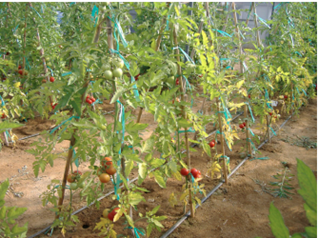Plants with Enhanced Immunity to Root Knot Nematodes
Background
Plant infections by plant-parasitic nematodes (PPNs) continue to be one of the major limitations in agricultural systems. Root-knot nematodes (RKNs), belonging to the genus Meloidogyne, are one of the most important groups of PPNs worldwide. Their wide host range combined with worldwide presence, continues to provide challenges for their control and breeding for resistance. Progress in cloning of RKN resistance genes has been dismal. Recent identification of pattern-triggered immunity in roots against nematodes provides tools and opportunities to develop durable host resistance against nematodes including RKNs.
Brief Description
Prof. Kaloshian and her colleagues from the University of California, Riverside, have developed plants with enhanced immunity resulting in enhanced resistance to RKNs. The methods comprise introducing into a plant a gene editing construct that specifically inhibits activity of G-LecRK-VI.13 gene, a negative regulator of plant immunity. Additionally, the descendant of this plant also carry the enhanced resistance to RKNs.
The invention could be used in a broad range of important agricultural crops including rice, lettuce, and tomatoes. This approach holds potential for increasing crop quality and yield, considering that plant damage from RKNs result in poor growth, a decline in quality and yield of the crop, and reduced resistance to environmental stresses. By triggering an enhanced immune response, by eliminating a negative regulator of immunity, the opportunity exists to develop more durable plant resistance towards RKNs and other types of nematodes.

Fig 1: Tomato plants, grown in a plastic house, infected with the root-knot nematode Meloidogyne incognita.
Application
- To develop enhanced plant resistance towards RKNs and other types of plant-parasitic nematodes
Patent Status
| Country | Type | Number | Dated | Case |
| United States Of America | Issued Patent | 10,738,322 | 08/11/2020 | 2017-054 |
Contact
- Rekha Chawla
- rekha.chawla@ucr.edu
- tel: View Phone Number.
Other Information
Keywords
nematology, root-knot nematodes, plant parasitic nematodes, nematodes
